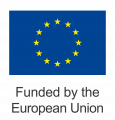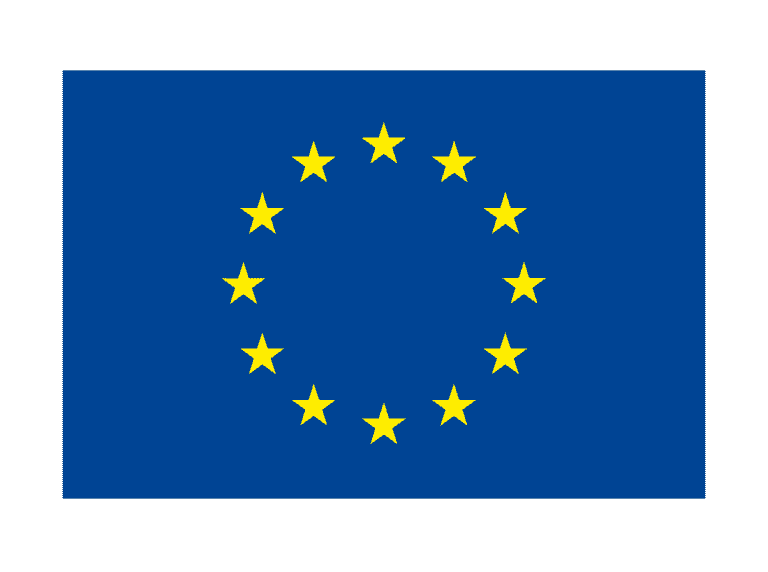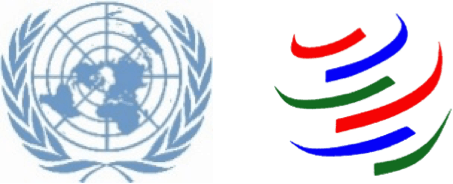A new era of due diligence, performance monitoring and corporate sustainability reporting
EFI has long been a champion of ethical production, fair trade and, increasingly, environmental sustainability in fashion. Its Charter of Ethical Business and Code of Conduct, which draw together key elements of internationally recognized human rights conventions and labour law, have underpinned its interventions in emerging economies in the last decade.
More and more trade and brand partners have adopted Environmental Social and Governance (ESG) criteria in running and reporting on their business, many using EFI’s ESG corporate reporting tools to support their efforts.
Rules on how to conduct business responsibly in global value chains – some explicit and codified into law, others more a response to unease about the effects of globalized fashion production – are dramatically raising the expectations of regulators, civil society and consumers.
Laws are not perfect, and some will have unintended consequences, but the direction of travel is clear: in the near-term companies will have to account for their actions to prevent, mitigate or remedy any adverse impacts of producing the clothes we wear.
Partnering for comprehensive industry solutions
The suite of tools used by EFI to ensure responsible business conduct represents the forefront of due diligence and data collection. EFI also has its own Charter of Ethical Business and its own Code of Conduct that details the values which inspire its actions.
The EFI tools apply the principles and values of the international consensus around responsible business through a series of assessments, starting with the ESG Due Diligence – Supply Chain Assessment Tool: the preliminary tool that sets in motion the entire system and aims to assess the readiness of the supply chain to engage in sustainable and responsible practices.

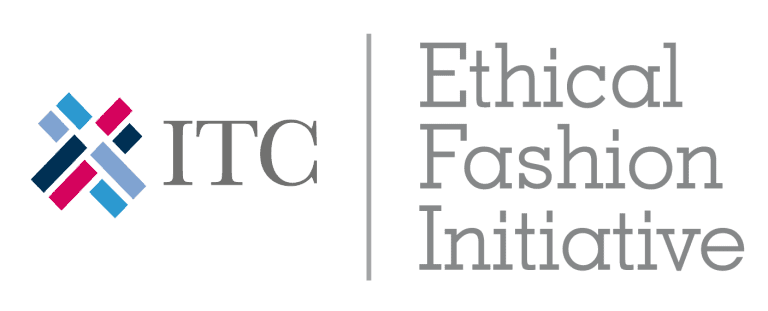
A suite of tools for corporate due diligence and reporting
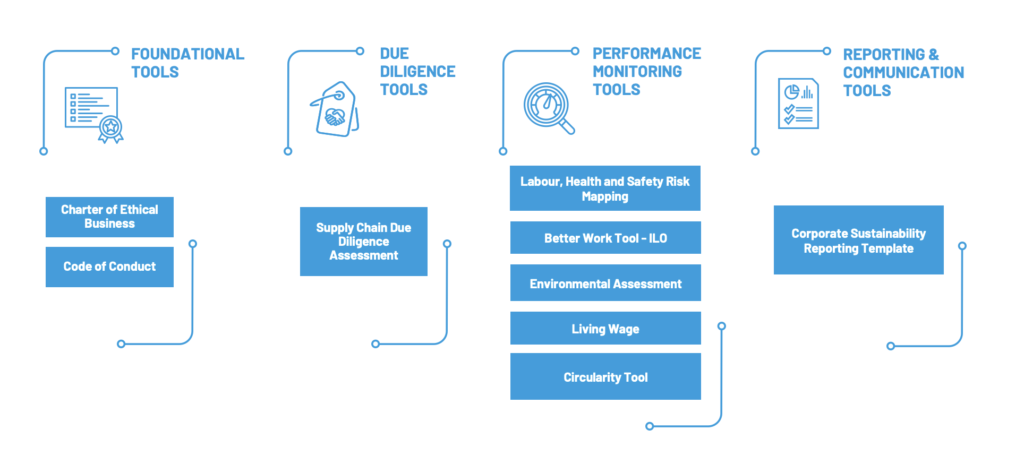
International standards and thought leaders
This suite of tools does not reinvent the wheel, rather it brings together several recognised tools and international standards for a holistic ESG framework.
The tools are based on core principles and guidelines of international standing, including the UN Guiding Principles, OECD and ILO. The Due Diligence assessment forms the basis for all further action; an opportunity to see where any supplier is on their ESG journey. Performance monitoring tools then address specific areas highlighted by the due diligence tool. Finally, a set of reporting tools provides industry-leading traceability and transparency.

Descriptive, not prescriptive
EFI partner brands can already use ten of the twelve tools in the suite (in blue in the above diagram). Soon the full suite will be available for fashion businesses to carry out due diligence on their supply chains, agree remedial action where needed, and report both on their performance and efforts to improve their environmental, social and governance performance.
Importantly, the tools are designed for self-assessment, to provide an overall snapshot of where a company is, flag up any areas that need attention and prepare for an independent audit. At no stage does EFI or any other external party become involved, unless specifically requested to do so.

Current status
The suite of tools is currently in the testing and piloting phase, with selected brands using the tools in their own assessments and reporting back to EFI and CNMI. Already the two partners have established working groups on Impact Assessment and Living Wage compliance and CNMI has used EFI’s ESG framework as it basis for this year’s CNMI Sustainable Fashion Awards.
Sign up below if you wish to be notified when all tools are available for public use.
Start your sustainability journey with EFI's foundational tools
For brands looking to implement responsible business conduct throughout their value chains and contribute to the Sustainable Development Goals, we recommend EFI’s foundational tools as a starting point. The Code of Conduct, developed with the Fair Labour Association is used throughout EFI’s supply chain and covers all aspects of ESG.
The Charter sets out the principles and values that underpin our approach to ethical and sustainable business and is based on established international human rights instruments, such as the Universal Declaration of Human Rights and International Labour Organization (ILO) Conventions. It does not attempt to create new standards or legally binding instruments. Instead, it focuses on how those standards can be applied in the value chain, comprising of both social and environmental commitments.
EFI's Code of Conduct
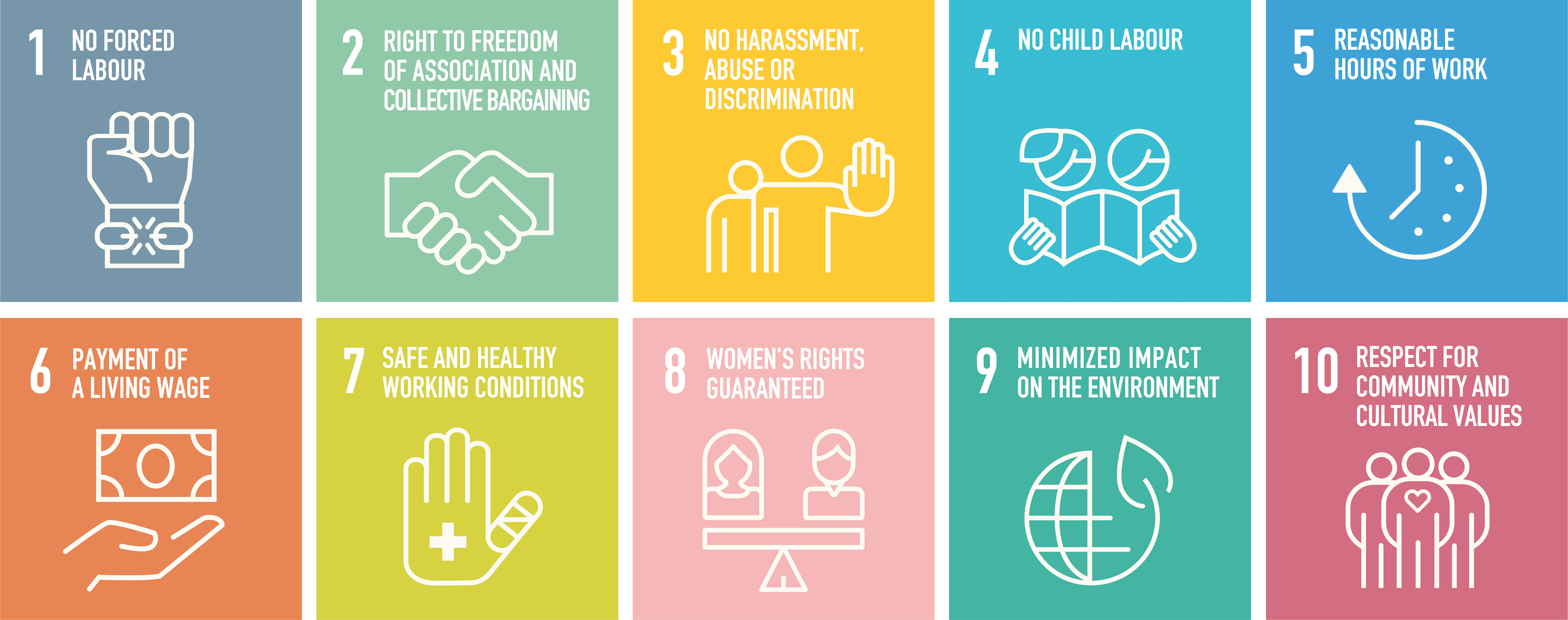
EFI's Charter of Ethical Business
- The foundation of our commitment to ethical trade is the Universal Declaration of Human Rights (UDHR), starting with Article 1: ‘All human beings are born free and equal in dignity and rights.’ (SDG 1, 10, 16)
Our purpose is to enable, through work, the freedom, equality, dignity, and rights of all those who contribute to the production of fashion and lifestyle products (SDG 5, 8, 10)
We believe that Ethical Fashion and Lifestyle products flow from a process of creation and self-realisation that is ethics-based, from the choice of materials and tools, to the skills and savoir-faire used in the creative process, to respect for all stakeholders in the value chain, including producers, workers and their communities and consumers (SDGs 8, 11, 12)
As value chain actors, we commit to building chains based on values that we declare with full transparency, traceability, and accountability for our social and environmental impacts (SDGs 6, 7, 13, 14, 15)
We strive to deploy regenerative business practices where production, consumption, and redistribution promote social and environmental sustainability (SDG 12)
We promote a vision of shared responsibility between all stakeholders for the human rights and environmental performance of the value chain (SDG 17)
We acknowledge the value provided by nature, people and society and the need for social, human and natural capital accounting (SDG 12)
We endeavour to provide work that is meaningful, purposeful and confers dignity (SDG 8)
We commit to paying taxes, negotiating fair contracts and paying fair wages that reduce poverty, inequality and exclusion (SDG 1, 10)
We believe that work must enable people to lead better lives in the communities where production processes take place. We enable this by creating conditions for greater equality of opportunity and treatment, fairness, and equity in the employer-employee relationship, access to education and training, livelihoods, and respect (SDGs 4, 5, 10, and 16).
